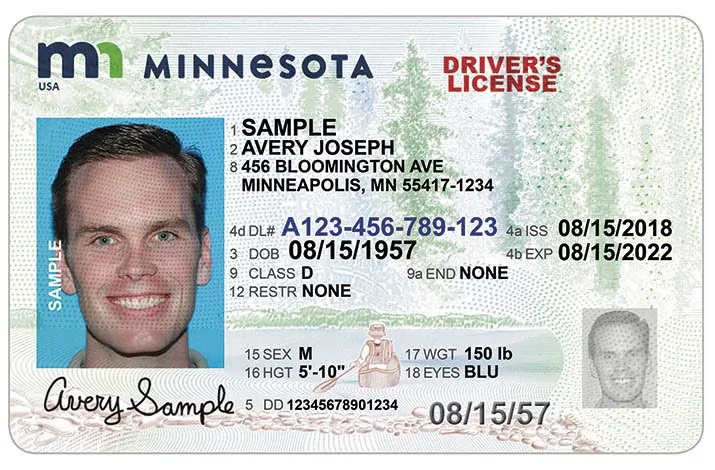Minnesota
ID Scanning Laws
A retailer in Minnesota is allowed to retain and use information obtained from IDs only for the following purposes:
- Verifying a customer’s age
- Establishing a customer’s identity
- Confirming a customer’s license status to operate a vehicle
- Disclosing such information to another business for:
- Verifying a check payment
- Evaluating creditworthiness
- Detecting or reducing the risk of fraud, abuse, identity theft or other crimes
- Collection activities
- Confirming that a customer has met the motor vehicle financial responsibility requirements
- Disclosing such information to:
- The department of transportation
- Insurance licensees
- Notaries
- Financial institutions if permitted by federal law
- Law enforcement agencies




Minnesota State Legislature
ID Scanning Resources
The Legal Framework
Minnesota ID Scanning Laws and Regulations
Minnesota Statute 84.0874: Electronic Licensing System Data for Noncommercial Fish and Game Licenses
This statute governs the use of data created, collected, stored, or maintained by the Department of Natural Resources for obtaining a noncommercial game and fish license, cross-country-ski pass, horse pass, or snowmobile trail sticker; registering a recreational motor vehicle; or any other electronic licensing transaction.
The data considered private under this statute include the name, addresses, driver’s license number, and date of birth of the individual. This data may be disclosed for law enforcement purposes and for natural resources management purposes, including recruitment, retention, and training certification and verification.
Minnesota Statute 146B.07: Professional Standards for Tattoo Artists
This statute requires a technician to verify the age of clients who state they are 18 years of age or older before performing any body art procedure on a client. The proof of age must be established by a valid driver’s license or identification card issued by the state of Minnesota or another state that includes a photograph and date of birth of the individual.
Minnesota Statute 325E.201: Dealers in Scrap Metal; Records, Reports, and Registration
This statute requires every scrap metal dealer, including an agent, employee, or representative of the dealer, to keep a written record at the time of each purchase or acquisition of scrap metal. The record must include an accurate account or description of the scrap metal purchased or acquired, the date, time, and place of the receipt of the scrap metal purchased or acquired, the name and address of the person selling or delivering the scrap metal, and the number of the seller’s or deliverer’s driver’s license, Minnesota identification card number, or other identification document number.
Minnesota S.F. No. 1006: Lawful Gambling Provisions Modifications
This law, enacted on August 1, 2013, raises the threshold to $100 for the prize above which the licensed organization must require identification of the winner.
Minnesota Statute 152.0973: Report on Transaction for the Sale of Precursors
This statute requires a report submitted by a supplier or purchaser to include the purchaser’s driver’s license number or state identification number and residential or mailing address other than a post office box number taken from the purchaser’s driver’s license or state identification card.
Please note that this information is intended to provide a general overview and does not constitute legal advice. Always consult with a legal professional for advice specific to your situation
Minnesota Anti-Trafficking Network
Our Fight Against Human Trafficking



Knowledge Base
Frequently Asked Questions
In Minnesota, there is no specific law that regulates a business's practice of scanning IDs. Therefore, a hotel is likely allowed to scan IDs and retain information obtained from a scan, subject to applicable privacy laws.
Yes, a hotel can retain the information obtained from scanning a guest's ID. However, they must comply with applicable privacy laws.
Yes, a hotel can use the information obtained from scanning a guest's ID for purposes such as verifying a customer’s age, establishing a customer’s identity, and confirming a customer’s license status to operate a vehicle.
Yes, a hotel can disclose such information to another business for purposes such as verifying a check payment, evaluating creditworthiness, detecting or reducing the risk of fraud, abuse, identity theft or other crimes, collection activities, or confirming that a customer has met the motor vehicle financial responsibility requirements.
Yes, a hotel can disclose such information to law enforcement agencies.
The penalties for violating ID scanning laws in Minnesota would depend on the specific statute that has been violated. Violations could potentially result in fines, penalties, or other legal consequences.
